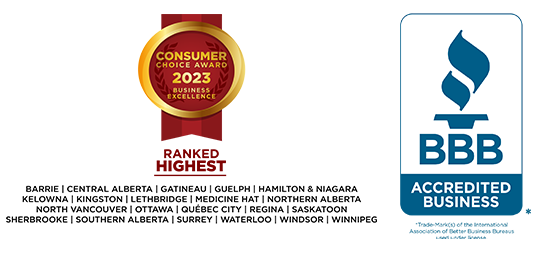Who Can File For Bankruptcy?
There are several common scenarios which may cause you to wonder whether personal bankruptcy is an appropriate option to get out of debt.

These include:
- Increasing difficulty keeping up with monthly debt payments
- Debts growing at an unmanageable pace
- Finding it difficult to pay bills despite high income
- Collections agents calling your home and work
- Worrying about an impending court judgement and / or potential wage garnishment
- Requiring payday loans to make ends meet
- A recent job loss making it difficult to pay your bills
- Retired with debt unsustainable on a fixed income
- Owing money to the government via income tax debt
If any of those sound familiar, it will be helpful to understand the criteria required to qualify for an assignment in bankruptcy under the Bankruptcy and Insolvency Act of Canada.
Types of Bankruptcy
Before we continue, it is important to note there are two types of bankruptcy – voluntary and involuntary.
As it sounds, you initiate a voluntary bankruptcy when you visit a Licensed Insolvency Trustee as a measure to eliminate unmanageable debt. Conversely, involuntary bankruptcy occurs when your creditors petition the courts to place you in bankruptcy as a means of recovering a portion of your outstanding debts.
Voluntary Bankruptcy
To qualify for a voluntary assignment in bankruptcy in Canada, you must owe at least $1,000 to a single creditor or $1,000 between multiple creditors. Above that, you will either:
- Not be able to pay your debts as they become due, OR
- Have stopped making payments to your creditors as they become due, OR
- The total realizable value of your assets is insufficient to enable payment of all your debts
Involuntary Bankruptcy
If one or more of your creditors determines they are unlikely to receive full or sufficient partial payment to satisfy your total outstanding debt(s), they may initiate court proceedings to have you forced into bankruptcy. This will guarantee them a portion of your liquidated assets and potential income contributions to your bankruptcy estate.
The courts review these matters on a case by case basis to determine whether involuntary bankruptcy is the correct course of action in your and your creditors' unique situation.
Bankruptcy Protections and Benefits
If you are heavily in debt, there are several benefits to filing an assignment in bankruptcy. These include:
- Protection from legal action and wage garnishments (including from the government)
- Ending present and preventing future collections activity
- Providing two financial counselling sessions to assist with budgeting and money management
- Eliminating debt and providing a financial fresh start – offering the opportunity to rebuild credit
You Have Options
During a Free Confidential Consultation, a Licensed Insolvency Trustee will review your unique situation and explain all the available options to resolve your debt challenges. Whether you qualify for a Life-Changing Debt Solution such as personal bankruptcy orConsumer Proposal – or would achieve greater benefit from a different strategy, they will help you make the choice that's right for you. No matter the path you take toward a financial fresh start, an MNP Licensed Insolvency Trustee can get you on track and help you defeat debt for good.

